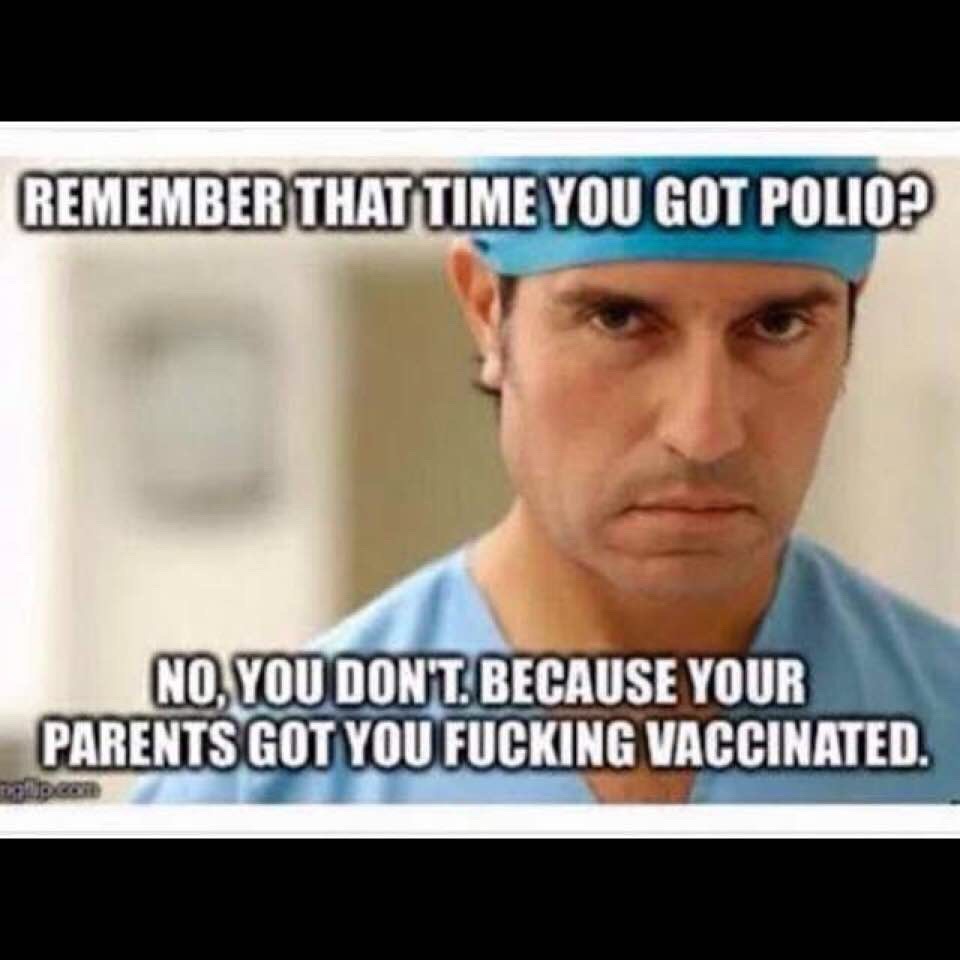Of course I agree with both of you on this point, but I think where we really diverge is in the idea that it needs further studying. I am an evidenced-based medicine stickler, and I also view myself as a healthy skeptic of any system I'm in because I want to push the boundary of cutting edge improvement. And I think that's perhaps why I go against the grain on some of these things.
All I'm saying is that if we are practicing truly cutting edge medicine, which if it hasn't really clicked yet, I don't think we do very well at all, then we would attempt to find a crossover between when and how much vaccination we are pushing and where that mortality/morbidity intersects the benefit.
And I think that, given my own literature review and appraisal of articles, there is a justification for parents being skeptical about some vaccines.
Furthermore, it's quite evident even from the responses on this post that the medical community as represented here is quite close-minded to even the possibility there may be better alternatives (or that pharmaceutical bias exists), and that bothers me ... a lot. That kind of mindset really kills the ability of the medical community to openly research better alternatives.
You say "why not give it to kids while they are in the hospital?" The majority of adverse reactions are in children under 4. Who also happen to be in the lowest risk category. Who also happen to represent the lowest categories of new diagnoses... More and more early environmental exposures to a whole host of different things are showing increasing correlation to chronic disease:
http://www.webmd.com/asthma/news/20160826/early-virus-raises-asthma-risk-in-certain-kids-study But if a mom comes into the office and asks to wait until their child is a bit older to avoid a possible reaction, she gets labeled an anti-vaxer. Is anything I have mentioned above sounding unreasonable to people? If anything, a stubborn medical community and hardline anti-vaxers begin to look like two groups playing tug-of-war, and what they really need is ref to call foul...
I maintain what I feel is a progressive stance on vaccination:
-I'd respectfully remind people that diverting from the normal vaccination schedule is not anti-vaccination, just a modification of something we already know to be beneficial
-To say there isn't a chance of correlation with acute or chronic disease is quite simply out of the scope of knowledge we have now in any comprehensive capacity
-We'd do right by our patients and ourselves to, at the very least, keep an open mind in a field where standard of care is a moving target



